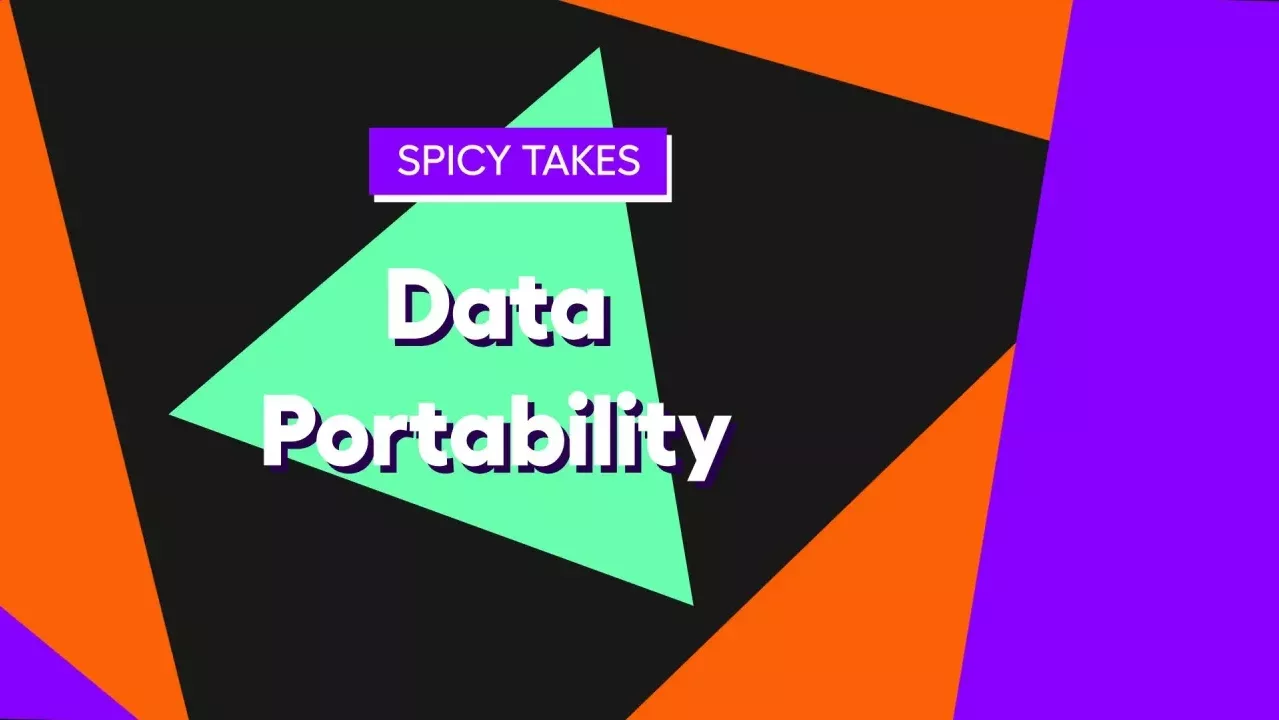Unlock healthcare productivity with data portability: A path to provider well-being and enhanced patient outcomes
The importance of data in healthcare cannot be overstated. Data not only drives evidence-based decision-making but also enables the transformation of care delivery, ultimately improving patient outcomes and provider satisfaction.
Without data portability, healthcare will remain akin to using MapQuest while iPhones dominate the market — a disparity that hinders progress and innovation.
This article explores the role of data portability in unlocking productivity, mitigating provider burnout, and enhancing patient outcomes in the healthcare sector. We will delve into key aspects such as the 360-degree patient view, FHIR adoption, and the Centers for Medicare and Medicaid Services' (CMS) 2030 initiative.
This topic was also discussed in Spicy Takes, Episode 1, featuring Arcadia’s CEO, Michael Meucci, Chief Product and Technology Officer, Nick Stepro, and Chief Medical Officer, Dr. Kate Behan.
Three ways data portability is impacting healthcare
1. 360-degree patient view
A decade ago, the concept of a Personal Health Record (PHR) held the promise of empowering patients with control over their health data. However, this vision never fully materialized, leaving a gap in achieving a holistic understanding of patients. Data from different healthcare systems, whether electronic health records (EHRs) or other sources, often remained fragmented and isolated. Data portability, as the name suggests, bridges these gaps.
The ability to aggregate data from diverse systems allows for a better view of patients, even if it's not yet a complete "whole-person record." Data portability serves as a crucial step toward achieving this goal. It enables healthcare providers to access critical patient information from various sources, creating a more comprehensive understanding of an individual's health history, medications, and treatments. This enhanced perspective enables better decision-making, ultimately benefiting both patients and healthcare providers.
2. FHIR adoption
Fast Healthcare Interoperability Resources (FHIR) has emerged as a standard for data exchange in the healthcare industry. Its widespread adoption marks a significant shift in the way data is accessed and shared. Prior to FHIR's adoption, extracting data from systems required a laborious, manual process that often involved standardizing data elements. This "janitorial" work consumed precious resources, diverting attention from valuable insights.
With FHIR, the healthcare industry has a standardized approach to data exchange. Data portability plays a pivotal role in leveraging FHIR to streamline data sharing, making it easier for various stakeholders to access standardized data. As FHIR adoption becomes more widespread, it unlocks the potential of data, bringing us closer to realizing the concept of a whole-person record. Data portability serves as the bridge to this valuable resource.
3. CMS’s 2023 initiative
The Centers for Medicare and Medicaid Services (CMS) has initiated a transformative journey toward value-based care, with a focus on improving the quality and efficiency of care delivery. Data-driven decision-making is at the core of this initiative. By aligning healthcare systems and providers with the principles of value-based care, CMS aims to improve clinical outcomes while managing costs effectively. This focus on value-based care underscores the significance of data in healthcare's future.
Data portability plays a crucial role in the success of the CMS 2030 initiative. The ability to aggregate data from various sources and share standardized information ensures that healthcare providers are well-equipped to make data-driven decisions. It facilitates the alignment of resources with patient needs, ultimately improving clinical outcomes and, in turn, the financial health of healthcare organizations.
Take action: Unlock the potential of data sources
Now that we understand the critical role of data portability in achieving a 360-degree patient view, leveraging FHIR, and supporting value-based care, the question remains: how can healthcare leaders unlock the potential of these data sources? Here are the key takeaways:
- Emphasis on whole-person view: Data portability allows healthcare providers to gain a more comprehensive understanding of patients, enabling them to make informed decisions and deliver personalized care.
- Action faster with standardized data: FHIR adoption, supported by data portability, simplifies data exchange and eliminates the need for manual data extraction and standardization. This streamlines decision-making and accelerates the delivery of care.
- Enable financial success: The successful implementation of CMS's 2030 initiative relies on data-driven strategies. Data portability empowers healthcare organizations to make informed decisions that improve clinical outcomes and financial performance.
Data portability: Next steps
Data portability is the key to the following:
- Unlocking productivity
- Mitigating provider burnout
- Improving patient outcomes
The ability to access, aggregate, and exchange data seamlessly is pivotal in achieving a 360-degree patient view, leveraging FHIR adoption, and aligning with value-based care initiatives such as CMS's 2030 vision.
The next step in accelerating data portability will empower healthcare leaders to tap into large language models, further enhancing the quality of care, patient engagement, and overall healthcare system performance. As healthcare professionals and technical leaders, embracing data portability is not just a step towards innovation, it is a leap towards a brighter and more efficient future in healthcare.
Ready to learn more about data portability and other hot topics in healthcare? Check out the first episode of Spicy Takes or reach out to our sales team to make data the heart of your healthcare business.

